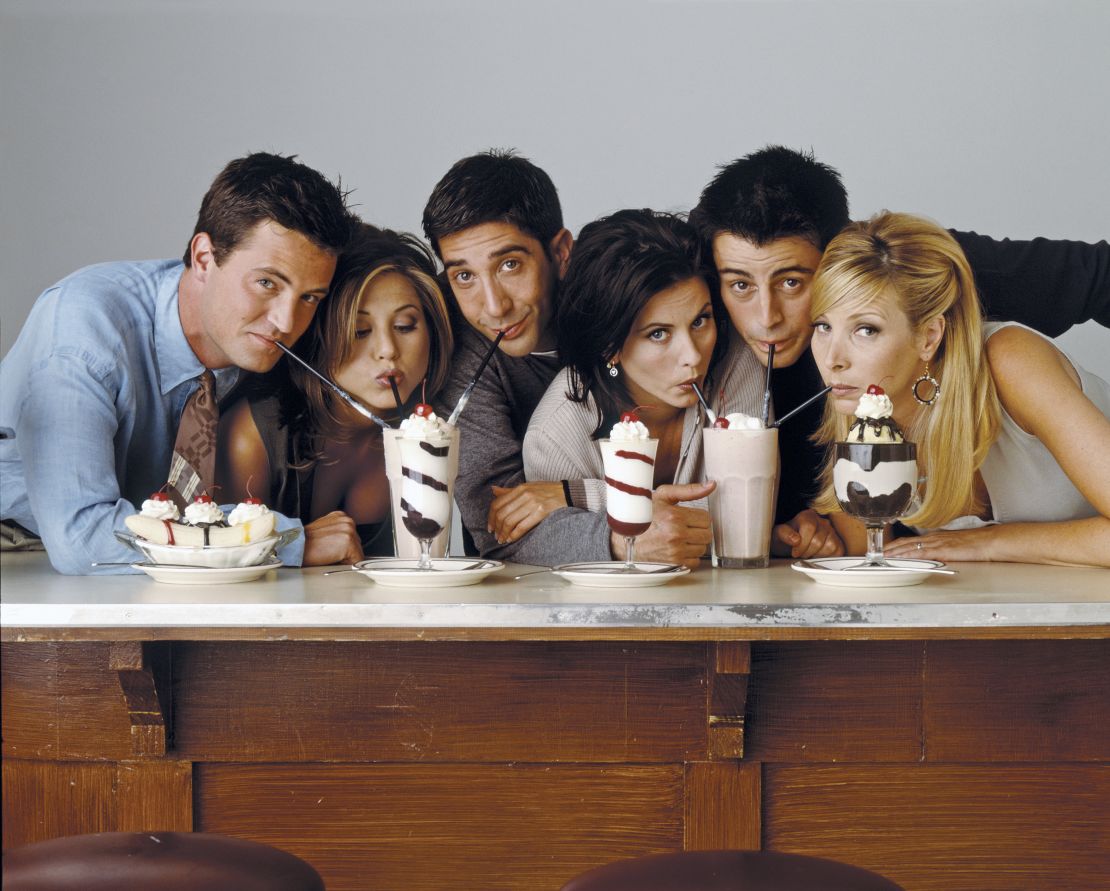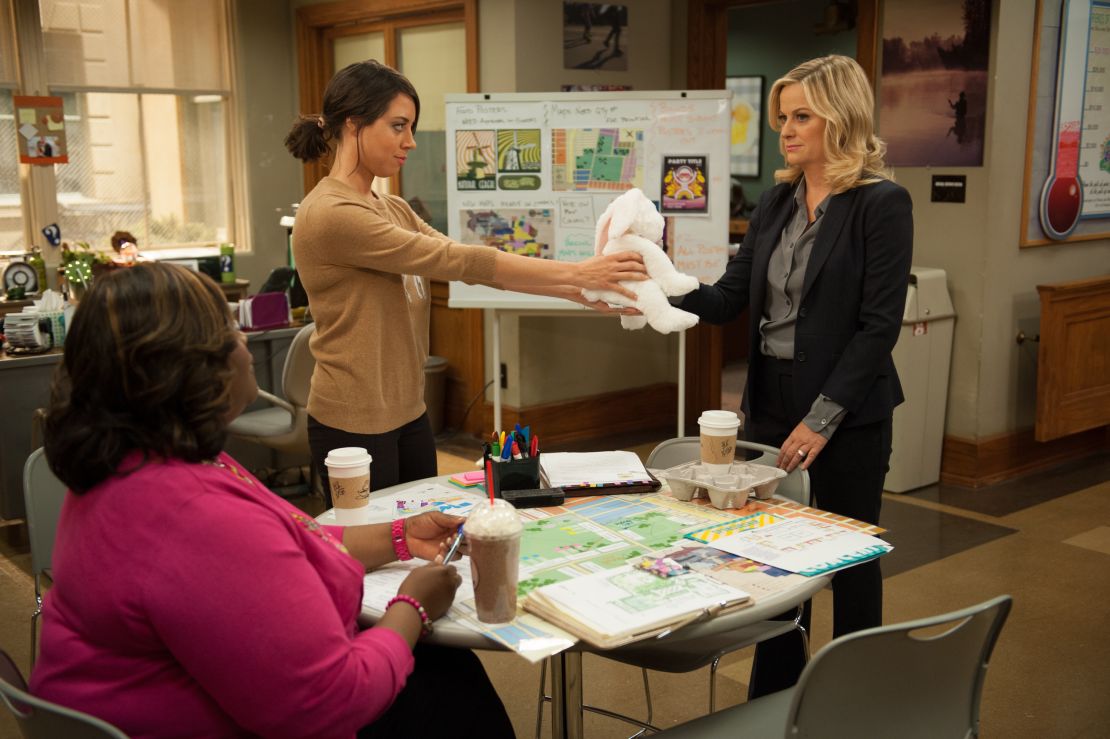Editor’s Note: Keeping you in the know, Culture Queue is an ongoing series of recommendations for timely books to read, films to watch and podcasts and music to listen to.
Romantic love is often regarded as the most important partnership one can have. But in the mid-1990s, when pop-rock group The Rembrandts released the now-famous “Friends” theme song “I’ll Be There For You” – an ode to a support system you have even when your love prospects are DOA – they placed friendship in its rightful top spot.
If you are more in the mood to celebrate your friends this year instead of your valentine – as Leslie Knope of the sitcom “Parks and Recreation” did when she founded the fictional holiday Galentine’s Day – consider the new pop-science book “Friends.” In it, British anthropologist and evolutionary psychologist Robin Dunbar asserts that the benefits of a circle of close friends far outweigh those of any single relationship, and that maintaining one is the best thing you can do for your health.

“The biggest predictor of your psychological health and well-being, your physical health and well-being, even your risk of dying, is the number and quality of close friendships you have,” Dunbar said in a video call.
We often consider how well we eat, how much we exercise and the medicines and vitamins we take to keep us healthy. But Dunbar says while those factors are important, research has shown our social connections can be even more crucial. Bolstering his claim is a 2010 analytical review, which found that participants across 148 studies had a 50% increased likelihood of survival if they had strong social relationships.
Designed for complexity
To Dunbar, who turned his attention to human social behavior after a career as a zoologist, the human social world “is by far the most complex thing” in the universe.
“That’s because it is so unpredictable, and it’s constantly turning over and changing,” he said. “People fall out with each other, they find better friends, they move apart, they just get bored.”
Yet our brains are designed to navigate the intricate social networks we build, and extract benefits from them.
According to “Friends,” strong social support systems are associated with a lower risk of depression and dementia and a better chance of survival, while loneliness – which Dunbar calls an “evolutionary alarm signal” – can be detrimental to our health. In one meta-analytical review cited in “Friends,” researchers looked at 70 studies conducted over an average of seven years that involved nearly 3.5 million people. They found those who were socially isolated, living alone, or simply felt persistently lonely had about a 30% increased chance of dying.
Mood-boosting bonds
There are a few theories as to why your friendships keep you healthy, according to “Friends,” from providing you help in crisis to giving you a fortifying mood lift. Studies show that friendships trigger the release endorphins, stress-relieving chemicals in our bodies, which then stimulate the production of the white blood cells that protect us from bacteria and viruses.

But the depth of those friendship also matters more than their quantity. Having loads of acquaintances won’t give you the same benefits that a few close bonds will. In a 2020 survey of nearly 40,000 subjects aged 50 or older in 13 European countries, researchers, including Dunbar, found that having just a few close friends was associated with a lower risk of depression and better quality of life. Having many social connections did not appear to be beneficial, and could actually be detrimental.
“If you have more than about five (close friends) you’re spreading yourself too thinly among all these extra friends,” Dunbar said. “And so none of them quite have the same sense of bonding.”
Though our ability to see our friends has become more limited due to the coronavirus pandemic, Dunbar said there’s no need to panic. Virtual activities may not be a perfect replacement, but we can still derive some of the benefits of social bonding from afar, and keeping up with friends by phone or video call will help nurture our relationships until we can spend quality time in person again.
So keep that weekly Zoom game night going or start up a new one to give your endorphins a boost.
“Friends: Understanding the Power of Our Most Important Relationships” by Robin Dunbar will be available through Little, Brown on March 4, 2021.
Add to queue: BFFS 4EVER
WATCH: “Parks and Recreation: Galentine’s Day”
Leslie Knope’s overzealous gift-giving (including 5,000-word essays to each of her friends on why they are awesome) is on full display in the now-classic episode that made February 13 an unofficial holiday to celebrate your girlfriends.
READ: “Big Friendship: How We Keep Each Other Close” by Aminatou Sow and Ann Friedman
In 2014, long-distance best friends Aminatou Sow and Ann Friedman began “Call Your Girlfriend,” a podcast in which they ring each other to chat about politics and pop culture. Last year, they released a book about what it takes to ensure your friendships go the distance.
WATCH: “Thelma & Louise”
Geena Davis and Susan Sarandon changed the buddy road trip trope forever when they played best-friends-turned-wanted-criminals on a weekend trip gone wrong.
WATCH: “The Brothers”
Four childhood best friends, played by Morris Chestnut, D.L. Hughley, Bill Bellamy and Shemar Moore, navigate love and family life as the prospect of marriage begins to shake their bond.
WATCH: “PEN15”
Maya Erskine and Anna Konkle relive their painfully awkward middle school years in this comedy series – only they’re adult actors and their classmates are all kids.
LISTEN: “I’ll Be There For You” by The Rembrandts
Despite being off the air for nearly two decades, “Friends” continues to be one of the most popular shows to stream, making The Rembrandts title track a permanent fixture in any playlist about friendship.



